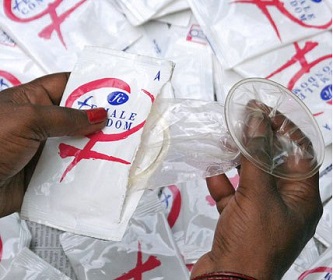
Facing realities of sexual, reproductive health rights among youth
Ghana, like many other countries, has been severely affected by the COVID-19 pandemic. While the government’s efforts have been devoted to curtailing the disease, a major concern has been its potential effects on the delivery and utilisation of sexual and reproductive health and rights (SRHR) services in the country.
Reproductive health issues are essential for sustainable development because of their links to gender equality, impact on adolescent health and their roles in shaping future economic development and environmental sustainability. It is therefore important for everyone to recognise that sexual and reproductive rights are fundamental to health and well-being.
Progress towards fulfilling SRHR services for all has, however, been stymied because of weak political commitment, inadequate resources and the unwillingness to openly address issues related to sexuality comprehensively.
Pregnancies
In a UNFPA 2022 State of the World Population report, almost half of all pregnancies worldwide are unintended, and over 60 per cent of these unintended pregnancies may end in abortion. A staggering 45 per cent of all abortions around the world are unsafe, making this a leading cause of maternal death.
Almost all unsafe abortions currently occur in developing countries and UNFPA fears that more unsafe abortions will occur around the world if access to abortion becomes more restricted.
Most young people in Ghana still do not have access to comprehensive SRHR education regarding access to safe abortion, sexual violence, among others, as they are not well incorporated into our day-to-day activities. According to a Reuters report in 2017, more than 200 million women who do not want to get pregnant use no contraceptives at all or rely on risky methods to avoid pregnancy often due to a lack of access, money or information.
Report
The report observed that if the women had reliable access to contraceptives, there would have been a sharp drop in the number of unwanted pregnancies, down from about 89 million a year to 22 million.
Meanwhile data from the 2014 Ghana Demographic and Health Survey (GDHS) report indicates that total unmet need for family planning is highest among the youngest women aged 15-19 (51 per cent) and lowest among the oldest women aged 45-59 years (14 per cent). Additionally, according to the Ghana Health Service between 2016 and 2020, 555,575 teen pregnancies were recorded; and in 2020 alone 107,023 pregnancies were recorded among girls aged 15 to 19 respectively.
The risk of neglecting the adolescent sexual and reproductive health could impose a life-lasting impact on them. Interestingly the National Population Council (NPC) has said the annual addition of 700,000 to Ghana’s population posed a huge challenge to development, ensuring quality of life for the population and some national policies such as Ghana beyond aid.
Challenges to right to be Informed on SRHR
Indeed, the right to freedom of opinion and expression is essential for human dignity and the enjoyment of many other rights as well as the advancement of peace and development.
However, it has come under increasing pressure and restrictions in the context of SRHR. It is worrying that several communities and institutions still don’t openly and comprehensively address sexual and reproductive health and rights issues.
In my opinion people should have the right to be informed and have access to safe and affordable SRHR services regardless of religion, ethnicity, culture, gender or age.
Why are people not interested in the weak political commitment and inadequate resources to address the SRHR needs of the most vulnerable groups such as women and children.
Attitude to SRHR issues
On social media for instance, one will be shocked to see several people including the youth masquerading as sex experts churning out all sorts of information and misguiding people on their sexuality.
One will wonder why a country that fought vigorously against comprehensive sexuality education will allow its media space to discuss sex, including sex positions, during prime-time hour. It is very common to hear radio presenters sell one or more sexual enhancement products on their shows to encourage their audiences, especially men, to patronise.
Prioritising rights and choices in SRHR mean providing all with adequate information and services to enable them to make their own informed decisions and act more efficiently for their own good and the well-being of others.
Sexual and reproductive health and rights are critical entitlements best supported through human rights-based approaches empowering rights holders to claim their rights and duty bearers to fulfil their obligations.
The current ostrich approach in addressing SRHR issues will have a detrimental effect on young peoples’ sexual and reproductive health and rights and worsen existing inequalities.
The writer is the Executive Director, Youth Alliance for Development, P.O.BOX 827, Obuasi. E-mail:
